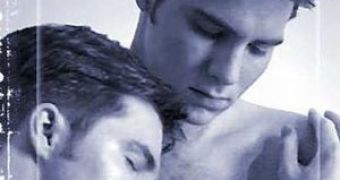According to a recent Canadian study led by researcher Anthony Bogaert , homosexuality is not related to the social or rearing factors, but to prenatal mechanisms. The research came to the conclusion that chances of being gay are influenced by the number of older biological brothers a man has. These brothers should be of the same mother, therefore carried in the same womb, but it does not matter if further in life they grew up together under the same roof or away one from the other.
The study had 944 participants that were split in 4 groups. All the groups included both men with gay and straight sexual orientation. Three of the groups were made of men that had biological brothers and came from united families, while the fourth group included men that were either adopted, either had step or half siblings.
The results of the study by Anthony Bogaert of Brock University,Canada, have been reported this week in the Proceedings of the National Academy of Sciences and showed that a men's orientation is not influenced by the social or rearing environment, but by the number of biologically-related brothers one has. Boys that had a small number of natural brothers are more likely to be sexually oriented in men than boys that had a higher number of half or step brothers. Also, even if a man did not grow up in the same place as his brothers did, having biological brothers increased the odds of homosexual orientation.
Bogaert writes in his report that "these results support a prenatal origin to sexual orientation development in men and indicate that the fraternal birth-order effect is probably the result of a maternal 'memory' for male gestations or births."
Bogaert further explains that a woman that had previously carried in her womb a male fetus will develop a strong immune response against other male fetuses and suggests that "if this immune theory were correct, then the link between the mother's immune reaction and the child's future sexual orientation would probably be some effect of maternal anti-male antibodies on the sexual differentiation of the brain."

 14 DAY TRIAL //
14 DAY TRIAL //